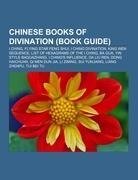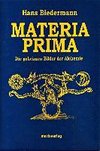
-
 Anglický jazyk
Anglický jazyk
Chinese books of divination (Book Guide)
Source: Wikipedia. Commentary (books not included). Pages: 29. Chapters: I Ching, Flying Star Feng Shui, I Ching divination, King Wen sequence, List of hexagrams of the I Ching, Ba gua, Yin Style Baguazhang, I Ching's influence, Da Liu Ren, Dong Haichuan,... Viac o knihe
Na objednávku, dodanie 2-4 týždne
14.22 €
bežná cena: 15.80 €
O knihe
Source: Wikipedia. Commentary (books not included). Pages: 29. Chapters: I Ching, Flying Star Feng Shui, I Ching divination, King Wen sequence, List of hexagrams of the I Ching, Ba gua, Yin Style Baguazhang, I Ching's influence, Da Liu Ren, Dong Haichuan, Qi Men Dun Jia, Li Ziming, Sui Yunjiang, Liang Zhenpu, Tui bei tu, Tie ban shen shu, Tai Yi Shen Shu, Legge romanization, Yuan Hai Zi Ping, Lingqijing, Jiaoshi Yilin, Books of divine wisdom in Chinese language, Xizi. Excerpt: The I Ching (Wade-Giles) or "Yì Jing" (pinyin), also known as the Book of Changes, Classic of Changes, and Zhouyi, is one of the oldest of the Chinese classic texts. The book contains a divination system comparable to Western geomancy or the West African Ifá system; in Western cultures and modern East Asia, it is still widely used for this purpose. The earliest extant version of the text, written on bamboo slips, albeit incomplete, is the Chujian Zhouyi, and dates to the latter half of the Warring States period (mid 4th to early 3rd century BC), and certainly cannot be later than 223 BC, when Chu was conquered by Qin. It is essentially the same as the standard text, except for a few significant variora. During the Warring States Period, the text was re-interpreted as a system of cosmology and philosophy that subsequently became intrinsic to Chinese culture. It centred on the ideas of the dynamic balance of opposites, the evolution of events as a process, and acceptance of the inevitability of change. The standard text originated from the ancient text (--) transmitted by Fei Zhi (--, c. 50 BC-10 AD) of the Han Dynasty. During the Han Dynasty this version competed with the bowdlerised new text (--) version transmitted by Tian He at the beginning of the Western Han. However, by the time of the Tang Dynasty the ancient text version, which survived Qin's book-burning by being preserved amongst the peasantry, became the accepted norm among Chinese scholars. Traditionally it was believed that the principles of the I Ching originated with the mythical Fu Xi (-- Fú Xi). In this respect he is seen as an early culture hero, one of the earliest legendary rulers of China (traditional dates 2800 BC-2737 BC), reputed to have had the 8 trigrams (-- ba guà) revealed to him supernaturally. By the time of the legendary Yu (-- Yu) 2194 BC - 2149 BC, the trigrams had supposedly been developed into 64 hexagrams (-- lìu shí sì gùa), which were recorded in the scripture Lian Shan («--»
- Vydavateľstvo: Books LLC, Reference Series
- Rok vydania: 2011
- Formát: Paperback
- Rozmer: 246 x 189 mm
- Jazyk: Anglický jazyk
- ISBN: 9781150996160






 Nemecký jazyk
Nemecký jazyk 





